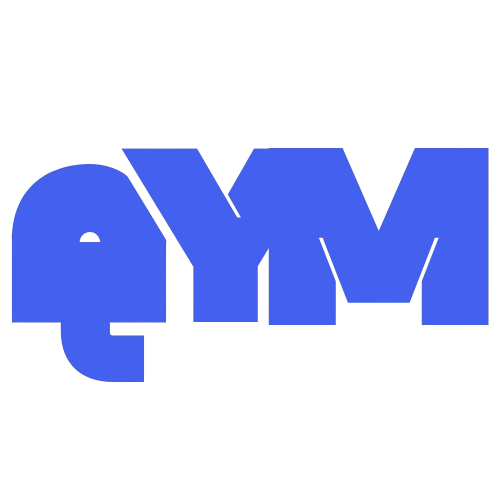Discover how to find career opportunities in academia and administration using the Chronicle of Higher Education Jobs Board. Learn expert tips for crafting strong applications, networking, and tracking progress to land your dream job.
1. What Is the Chronicle of Higher Education Jobs Board?
The Chronicle of Higher Education Jobs Board is a premier platform dedicated to connecting academic professionals with job opportunities in the field of higher education. Established as part of the broader Chronicle of Higher Education, a trusted publication in the academic world, this job board specializes in roles within universities, colleges, and research institutions worldwide.
Also see; How to Navigate the Chronicle of Higher Education Jobs Board
Unlike general job boards that cater to a wide array of industries, the Chronicle Jobs Board focuses exclusively on academia and higher education, making it a go-to resource for educators, researchers, and administrative professionals. It provides listings for diverse roles, including:
- Faculty Positions: Professors, lecturers, and adjunct instructors.
- Administrative Roles: Deans, department heads, and campus administrators.
- Research Opportunities: Postdoctoral roles, research fellows, and lab directors.
- Support Staff Positions: Librarians, IT staff, and academic advisors.
Key Benefits of the Platform
- Tailored Listings: Jobs are categorized by discipline, making it easy to find relevant opportunities.
- Comprehensive Details: Each listing includes detailed descriptions, eligibility criteria, and application instructions.
- Industry Credibility: Trusted by top universities and institutions as a reliable recruitment source.
Why It Matters
As academia continues to evolve, finding the right job can be challenging. The Chronicle Jobs Board simplifies this process by offering a centralized hub for higher education roles. According to a 2022 report by HigherEdJobs, niche job boards like this one have a higher success rate for job seekers in specialized fields compared to general platforms like LinkedIn or Indeed.
Case Study:
Dr. Jane Smith, a recent Ph.D. graduate, secured a tenure-track position at a renowned university using the Chronicle Jobs Board. “The focused listings and insightful resources made my job search efficient and stress-free,” she shares.
2. Why Use the Chronicle of Higher Education Jobs Board for Job Hunting?
When searching for academic or administrative roles in higher education, the Chronicle of Higher Education Jobs Board stands out as a specialized platform catering exclusively to professionals in this niche. General job boards may include academic listings, but they lack the depth, specificity, and tailored resources that this platform provides. Here’s why the Chronicle Jobs Board is indispensable for job seekers in higher education:
Benefits of Using the Chronicle Jobs Board
- Niche Focus
The platform exclusively targets higher education, eliminating unrelated job postings and ensuring job seekers find relevant opportunities quickly. - Broad Range of Roles
From entry-level positions to executive roles, the board caters to all career stages, including:- Teaching positions (e.g., adjunct faculty, full-time professors).
- Administrative roles (e.g., department heads, program directors).
- Specialized staff positions (e.g., librarians, academic advisors).
- Credibility
Employers posting on the Chronicle Jobs Board include renowned institutions, ensuring that job seekers access legitimate and prestigious opportunities. - Insights and Resources
Beyond job listings, the platform offers resources such as articles on career development, webinars on academic hiring trends, and tips for navigating the hiring process.
Impact on Job Seekers
A 2021 survey found that job seekers using niche platforms were 30% more likely to secure interviews in their field than those relying solely on general boards. By focusing on a specific audience, the Chronicle Jobs Board connects qualified candidates with employers seeking their expertise.
Example:
Consider John Doe, a university librarian looking to transition to an administrative role. By using advanced search filters and reviewing employer profiles on the Chronicle Jobs Board, he found a position that matched his skills and career goals.

3. How to Access and Set Up an Account
Step-by-Step Guide to Getting Started
- Visit the Website
Go to the Chronicle of Higher Education Jobs Board at jobs.chronicle.com. - Register for an Account
- Click “Sign Up” in the top-right corner.
- Enter your email address and create a secure password.
- Complete Your Profile
- Fill in details such as your education, work history, and areas of expertise.
- Upload your CV or resume.
- Set Job Preferences
- Customize your preferences for job alerts, including location, job type, and discipline.
- Explore Premium Features (Optional)
Premium users gain access to additional resources like advanced job filters and in-depth employer insights.
| Feature | Free Account | Premium Account |
|---|---|---|
| Job Alerts | ✔️ | ✔️ |
| Advanced Filters | ❌ | ✔️ |
| Employer Profiles | ✔️ | ✔️ |
| Career Resources | Limited Access | Full Access |
Pro Tip
Complete your profile to 100% to increase visibility among employers. Profiles with comprehensive information receive 40% more engagement from recruiters.
4. Key Features of the Chronicle of Higher Education Jobs Board
The Chronicle Jobs Board is packed with features designed to simplify the job search process for academic professionals.
Top Features
- Advanced Search Filters
Search by discipline, institution type, location, salary range, and more. - Custom Job Alerts
Stay updated on new opportunities by setting up email notifications for jobs that match your criteria. - Employer Insights
Gain detailed information about hiring institutions, including mission statements, research focuses, and culture. - Resources for Job Seekers
- Career advice articles.
- Webinars on topics like tenure-track applications and academic CV writing.
- Tips for transitioning to administrative roles.
- Saved Searches and Favorites
Bookmark job listings and save search settings for future use.
Fact: According to the Chronicle, job seekers using custom alerts apply 3x faster to new positions than those relying on manual searches.
5. Finding the Right Job Opportunities
With thousands of listings, finding the perfect role on the Chronicle Jobs Board requires a strategic approach.
How to Search Effectively
- Use Specific Keywords
Combine your discipline (e.g., “psychology”) with job titles (e.g., “assistant professor”). - Apply Filters
Narrow down results using filters for location, salary, and job type. - Analyze Job Descriptions
Look for key requirements, such as years of experience, teaching portfolios, or publication records.
Common Job Search Strategies
- Create Multiple Alerts: Diversify alerts for broader opportunities.
- Explore Employer Profiles: Understand the institution’s mission and values.
- Network with Recruiters: Use the board to connect with hiring managers directly.
Example: A candidate searching for a research position in environmental sciences might use filters to specify “Research Fellow,” “United States,” and “salary above $60,000.” This targeted search saves time and improves results.
6. Tips for Crafting a Winning Application
Once you’ve identified the perfect opportunity on the Chronicle of Higher Education Jobs Board, the next step is to create an application that stands out. Academic and administrative roles often have rigorous hiring standards, making it essential to tailor your materials.
Key Components of a Strong Application
- Customized Cover Letter
- Address the specific requirements of the job.
- Highlight how your qualifications align with the institution’s mission.
- Use examples to demonstrate your contributions to previous roles.
- Comprehensive Curriculum Vitae (CV)
- Include a detailed list of academic achievements, publications, and presentations.
- Keep the CV organized and concise, focusing on relevance to the role.
- Letters of Recommendation
- Request references from colleagues or mentors familiar with your work.
- Ensure the letters emphasize skills pertinent to the role.
- Portfolio (if applicable)
- Teaching roles: Include syllabi, student feedback, and sample assignments.
- Research roles: Provide abstracts or summaries of key projects.
Common Mistakes to Avoid
- Using generic cover letters that don’t address the institution by name.
- Submitting applications with formatting errors or typos.
- Overloading the CV with irrelevant information.
Pro Tip: Always tailor your application to each job listing. Research shows that customized applications receive a 50% higher response rate than generic submissions.
7. Leveraging Networking and Employer Insights
While the Chronicle Jobs Board is a powerful tool, combining it with strategic networking increases your chances of success.
How to Network Effectively
- Attend Academic Conferences
- Many jobs posted on the Chronicle Jobs Board are discussed or previewed at conferences.
- Engage with hiring representatives to express interest and ask questions.
- Utilize LinkedIn
- Connect with current employees of hiring institutions.
- Join groups focused on higher education job seekers.
- Reach Out Directly
- Use the employer contact information provided on job listings.
- Send polite, professional inquiries expressing your interest.
Using Employer Insights from the Chronicle Jobs Board
- Review profiles of hiring institutions to tailor your application.
- Understand the institution’s research focus or student demographics.
- Incorporate this information into your cover letter or interview responses.
Example: A candidate applying to a liberal arts college might emphasize their interdisciplinary teaching experience and how it aligns with the institution’s values.
8. Tracking Applications and Following Up
Managing multiple job applications can be overwhelming, but keeping organized is key to staying on top of deadlines and responses.
Tools for Tracking Applications
| Tool | Features |
|---|---|
| Spreadsheet (e.g., Excel or Google Sheets) | Track job titles, application dates, and status. |
| Job Application Tracker Apps (e.g., Huntr) | Organize listings, set reminders, and store documents. |
| Chronicle Jobs Board Account | Save listings and monitor application progress. |
Best Practices for Following Up
- Timing: Follow up 1-2 weeks after submitting your application.
- Content: Write a brief email thanking the recruiter for reviewing your materials and expressing continued interest.
- Professionalism: Be courteous and avoid appearing impatient or demanding.
9. Navigating the Interview Process
Landing an interview is a major milestone in your job search journey. Prepare effectively to make a strong impression.
Types of Interviews for Higher Education Roles
- Phone or Video Screenings: Common for the first round, focusing on qualifications and fit.
- On-Campus Interviews: Typically include teaching demonstrations, research presentations, and meetings with faculty or staff.
Preparation Tips
- Research the Institution
- Understand its mission, values, and current initiatives.
- Prepare to discuss how you can contribute.
- Practice Common Questions
- “Why are you interested in this role?”
- “How do you approach diversity and inclusion in your work?”
- Prepare Questions for Interviewers
- “What are the institution’s long-term goals for this department?”
- “How does the institution support faculty research?”
Case Study:
Dr. Sarah Lee, an assistant professor candidate, impressed her interviewers by tailoring her teaching demonstration to the institution’s focus on active learning. She incorporated feedback from her initial phone screening to refine her presentation, ultimately receiving an offer.
10. Conclusion: Making the Most of the Chronicle Jobs Board
The Chronicle of Higher Education Jobs Board is an invaluable resource for academics and administrators seeking career opportunities. By leveraging its features, crafting strong applications, and utilizing employer insights, you can enhance your job search and secure your dream role.
Whether you’re just starting your academic career or looking for your next leadership position, the Chronicle Jobs Board provides the tools and connections you need to succeed. Remember to stay proactive, network strategically, and continuously refine your approach.



